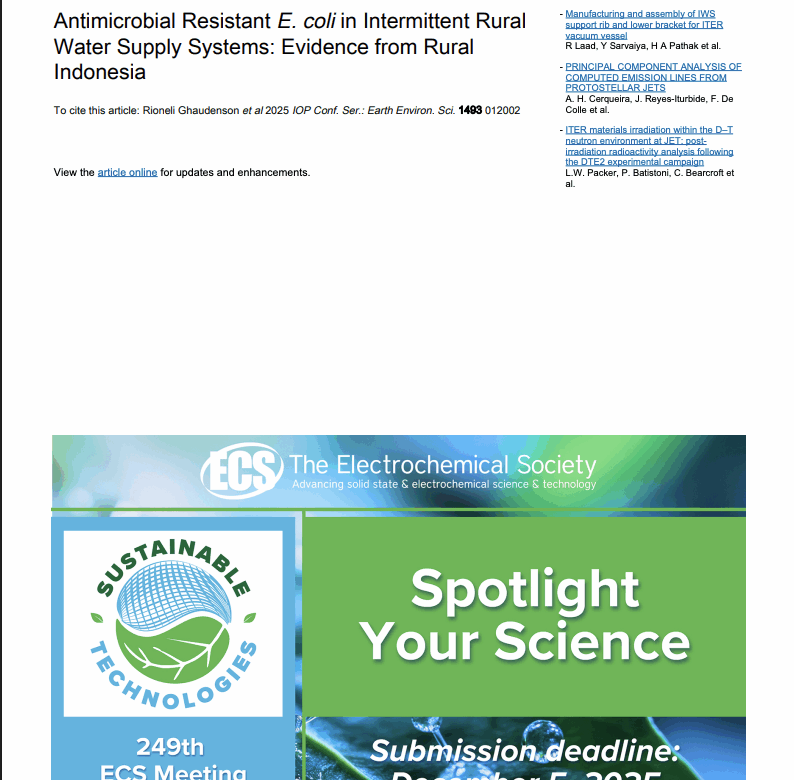Abstract
Intermittent water supply (IWS) systems remain prevalent in community-managed water supply programs in rural and peri-urban areas. Although it serves 1,3 billion people worldwide, IWS poses challenges: frequent flow interruptions lead to infrastructure damage, intrusion, backflow, and biofilm release. This study aims to investigate the relationships between intermittency and water quality in 2 community-managed water supply systems in South Kalimantan, Indonesia with different intermittency regimes: continuous water supply (CWS) and IWS. The data collection consisted of household interviews (N=20) and water sample collection at the water source, water system output, and household (N=50). Microbial analysis of E. coli and antimicrobial-resistant E. coli was conducted using Aquagenx field test kits, respectively. Most households used Pamsimas as their primary water source for bathing and washing (80.0%). IWS households exhibit a significantly higher prevalence of E. coli (50.0%) and antimicrobial-resistant E. coli (40.0%) contamination compared to CWS households (40.0% and 10.0%, respectively). A statistically significant correlation was identified between intermittency and AMR antimicrobial-resistant E. coli contamination (95% CI; p=0.028). This result suggests that IWS systems are more prone to contamination of antimicrobial-resistant bacteria than CWS systems, emphasizing the need for improved management practices and water quality assurance in IWS systems.
Author: Rioneli Ghaudenson, Cindy Rianti Priadi, and Iftita Rahmatika (Department of Civil and Environmental Engineering, Faculty of Engineering, Universitas Indonesia, Indonesia).

